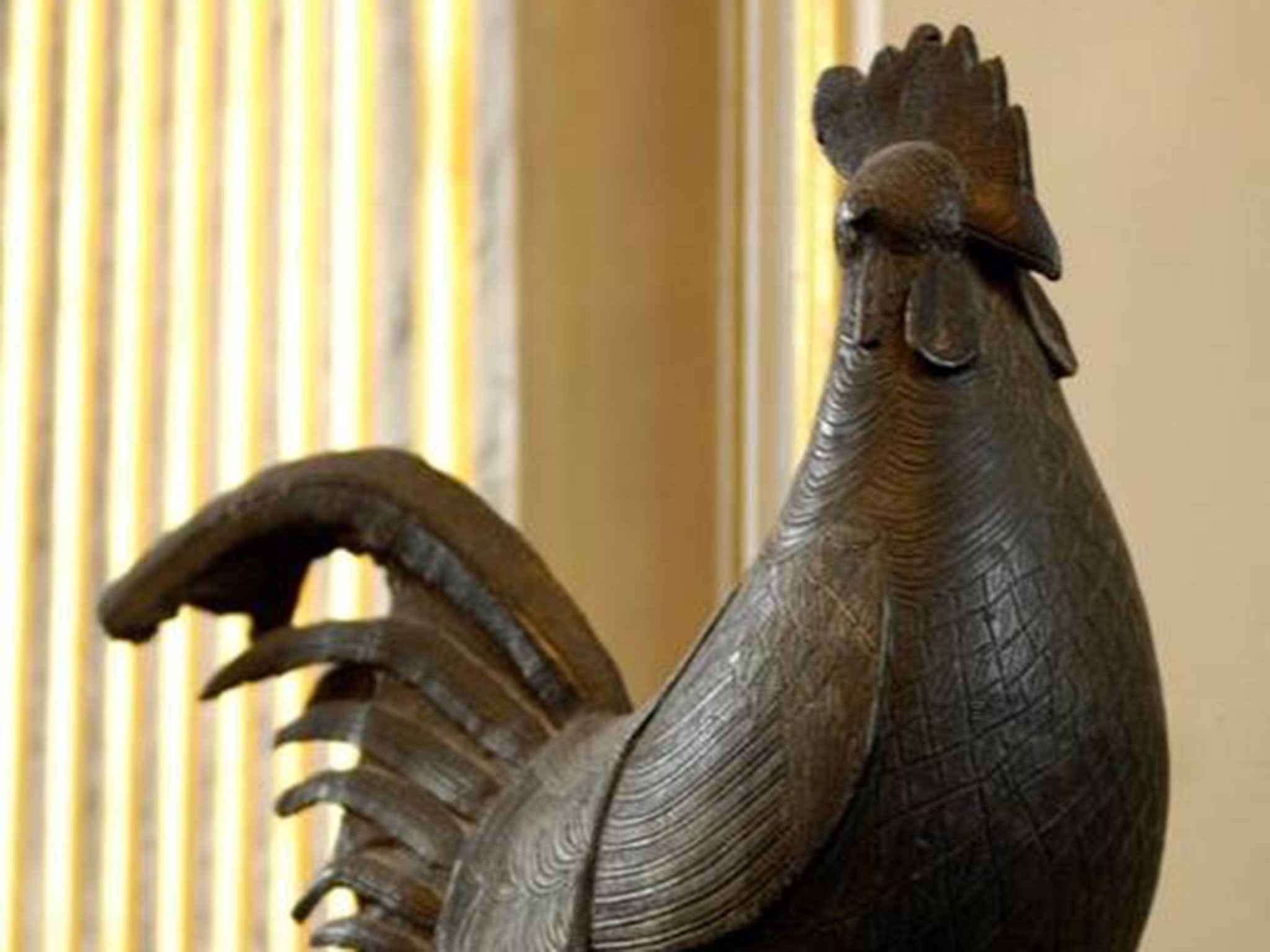Cambridge University students call for looted bronze cockerel statue to be returned to Africa
One student has named the cockerel the 'new Cecil Rhodes' following the row over a statue of the colonialist

Your support helps us to tell the story
From reproductive rights to climate change to Big Tech, The Independent is on the ground when the story is developing. Whether it's investigating the financials of Elon Musk's pro-Trump PAC or producing our latest documentary, 'The A Word', which shines a light on the American women fighting for reproductive rights, we know how important it is to parse out the facts from the messaging.
At such a critical moment in US history, we need reporters on the ground. Your donation allows us to keep sending journalists to speak to both sides of the story.
The Independent is trusted by Americans across the entire political spectrum. And unlike many other quality news outlets, we choose not to lock Americans out of our reporting and analysis with paywalls. We believe quality journalism should be available to everyone, paid for by those who can afford it.
Your support makes all the difference.Students at Cambridge University are calling for a bronze cockerel statue looted in a British colonial expedition to be returned to Africa in a public ceremony.
The cockerel – dubbed the “new Cecil Rhodes” by one student, following the row over whether a statue of the colonialist should be taken down at Oxford University – holds pride of place in Jesus College’s dining hall, and reflects the three cockerel’s heads on the college’s official crest.
Students say it should be “repatriated” to Nigeria in a ceremony at the country’s royal palace, having been among hundreds of bronze works of art looted from Africa in the late 19th century, The Sunday Times reported.
However, the wording of the motion has also been contentious. Jason Okundaye, a Pembroke College student, said more black students should be involved in penning the repatriation demand, set to be debated next month by the college’s council.
A Cambridge University spokesman said: “We recognise that ethical issues are of great importance.”
Join our commenting forum
Join thought-provoking conversations, follow other Independent readers and see their replies
Comments